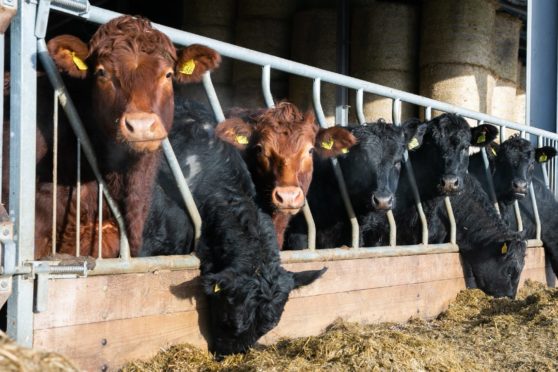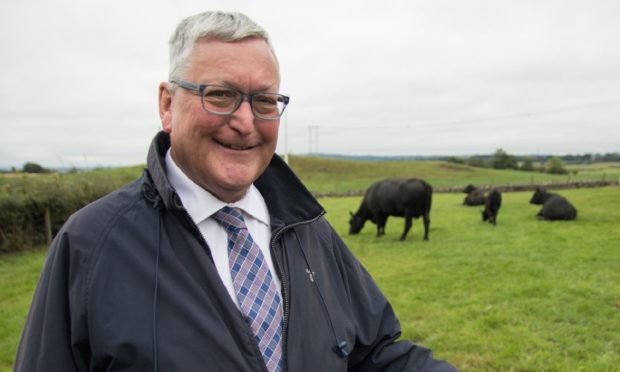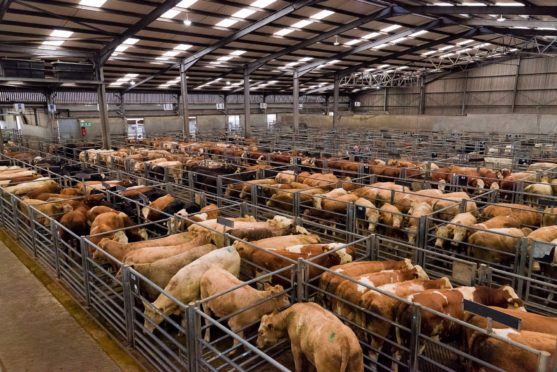You could be forgiven for not realising it, but we are in the final week of an election campaign that will decide who governs at Holyrood for the next five years.
It has been a lacklustre and near invisible campaign, and most people I speak to seem totally disinterested in the whole process.
I suspect apathy is likely to be the big winner with turnout struggling to reach more than 50%.
Yet this election comes at a crucial time as Scotland faces massive challenges in recovering from the pandemic and getting our economy going again.
For the farming industry the stakes are high.
There is an urgent need for a new farm policy and a clear direction from Government on how the industry transitions to a more sustainable future.
I watched the recent NFU Scotland online hustings hoping for some clarity.
There were warm words on how important the sector was for rural Scotland and the politicians all pledged support for farming at current payment levels.
All pledged to build a more sustainable agriculture using the recommendations from the farmer-led groups as the starting point in developing a new farm policy.
When asked about alleged proposals by civil servants to cut Scottish cow numbers by 300,000 to meet carbon reduction targets Fergus Ewing, who is hoping to be re-elected for the SNP and reappointed Rural Economy Secretary, stated he would never agree to that if he remained in post.
Jim Walker and Neil Wilson who sit on the Suckler Beef Climate Group claim the argument about cutting cow numbers to reduce emissions from the Scottish livestock sector is raging within the Scottish Government.
They claim that civil servants are blocking the roll out of the new beef sustainability scheme because they want a cut in cow numbers to be included.
This should not come as a surprise to the industry.
At the Highland Show in 2019 former Quality Meat Scotland (QMS) leader Jim McLaren warned the hugely ambitious and much trumpeted Scottish target of net-zero by 2045 set by Nicola Sturgeon threatened the very future of the livestock sector.
As he pointed out the Government’s own advice stated it could be the end of livestock production.
Despite that warning the First Minister went ahead.
Scottish livestock farmers face a double whammy from that decision.
For a start, the Scottish net-zero target is much tougher than the UK or EU 2050 target.
To compound that the Scottish Government’s decision to go for an individual Scottish target instead of a UK one has left our relatively large livestock sector shouldering a far heavier burden of emission cuts as agriculture accounts for 24% of the total emissions in Scotland.
In the rest of the UK and in Europe agriculture accounts for 10% of total emissions and therefore the burden of carbon reduction on their farmers is relatively speaking much lower.
Irish agriculture faces the exact same challenge as its large livestock sector means agriculture accounts for over 30% of total carbon emissions.
Irish farmers are up in arms at Irish Government proposals for new climate targets calling for a 10% reduction in biogenic methane which could see cattle numbers cut by 400,000.
Irish farm leaders are in full campaign mode against the plans.
To their credit the approach by Scottish farm leaders has been the opposite.
Recognising the industry has a serious problem many of our leading farmers have given of their time and knowledge to participate in Government expert groups set up to develop plans on how to decarbonise Scottish farming.
The proposals they put forward are not greenwash.
Indeed, asking farmers especially in the livestock sector to carry out compulsory carbon audits, biodiversity, forage, and nutrient plans before they can even join future support schemes will be a hard sell.
The proposals are a serious attempt to drive massive changes in the way we farm in Scotland and transition to a low carbon future.
However, there is anger and frustration within the beef group that their plans appear to be stymied.
Fergus Ewing claims he has the backing of Nicola Sturgeon for their plans, but it his civil servants who appear to be blocking it by demanding cow numbers must be cut to meet the legally binding targets for the sector.
Having served in Government for eight years I find that claim extremely hard to believe.
In our democratic system civil servants advise – politicians decide.
Could it be that Fergus has been unable to persuade the First Minister or his cabinet colleagues to back his plans? He has form on this as he lost the internal battle when the original net-zero by 2045 was agreed.
With the SNP likely to form the next Government what happens next?
I strongly believe the industry must be given the opportunity to implement their carbon reduction plans and the time to see if they work.
The draconian plan to slash cow numbers could cause huge economic damage to our most fragile areas so they must be put aside and used only as a last resort.
- George Lyon is a former MEP and a former president of NFU Scotland. He is a senior consultant for Hume Brophy.


